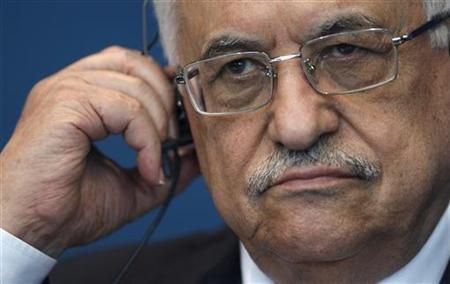Fatah, Hamas Seek Gains in a Reshaped Middle East

Representatives of the rival factions Fatah and Hamas are pursuing contrasting approaches to building support for the Palestinian cause, with Fatah engaged in apparently fruitless peace talks with Israel while Hamas' leader pays visits to newly empowered Islamist governments across the region.
While the two developments are not directly related, they nevertheless offer a glimpse of how the Palestinian peace process might play out in a region reshaped by popular uprisings. Prior to embarking on his first trip out of the Hamas-controlled Gaza strip for his first official visit since the 2007 war between Fatah and Hamas, prime minister Ismail Haniya said that the Arab Spring has opened a wide horizon for us, and we must take advantage to promote the interests of our people.
Countries Haniya has visited so far include Tunisia and Egypt, where recently elected governments have heavily Islamic contingents, and Turkey, a regional power broker and Hamas ally whose relations with Israel have deteriorated. He has dismissed talks in Jordan between Israel and a representative of the Fatah-dominated Palestinian Liberation Organization as a farce and a futile gesture which will lead nowhere. A Fatah official offered a similarly grim assessment of the talks.
Quartet's Requirements
Israel and the so-called quartet of Western powers refuse to negotiate with Hamas until the organization accepts requirements that include renouncing the use of violence, recognizing Israel's right to exist and abiding by past Israeli-Palestinian agreements. That makes Fatah, through the traditional diplomatic vehicle of the Palestinian Liberation Organization, the Palestinians' interlocutor during officially sanctioned talks with Israel. Both Israel and the United States have insisted such talks are the sole route to resolving the Palestinian issue.
Complicating matters is the fact that Hamas and Fatah recently struck a tentative reconciliation deal that could eventually see Hamas admitted to the Palestinian Liberation Organization, a transnational entity that Hamas has long refused to accept as the sole representative of the Palestinian people. Palestinian Authority president Mahmoud Abbas has sought to balance that agreement with the need to show Israel that the Palestinians are ready to come to the table.
President Abbas is oscillating between two paths, neither of which appears promising: reconciliation with Hamas on one hand and negotiations with Israel on the other, Nathan Thrall, a Middle East analyst with the International Crisis Group, wrote in an e-mail. Though Abbas has incentives to make a show of progress on both fronts, there are few signs that substantive achievements will be made in either one, Thrall added.
Israel and the Palestinians remain far apart, with the Palestinians demanding a freeze on settlement building and Israel insisting that talks cannot involve any such precondition. It was partially in recognition of that impasse that Abbas earlier this year sought to bypass the traditional channels of negotiation and internationalize the issue by attempting to upgrade the Palestinians' status at the United Nations, a move that was denounced by the U.S. and Israel. The move to mend relations with Hamas could reflect a similar calculation that talks with Israel are unlikely to bear fruit.
I think Abbas' preference has always been negotiations but negotiations that are serious, and I think he turned to both the United Nations and reconciliation because he felt he wasn't getting anywhere and the prospects for getting anywhere didn't exist, said Daniel Kurtzer, a professor of international affairs at Princeton University and a former U.S. ambassador to Egypt and Israel. As far as he's concerned he'll see where things go and keep juggling.
Hamas, Fatah Have an Eye on Arab Reform Movement
Haniya has a pressing motive in his tour of the Middle East. The turmoil engulfing Syria threatens to topple the regime of president Bashar al-Assad, a crucial Hamas patron, and is forcing Hamas to consider relocating its Damascus headquarters. But beyond that consideration, both Hamas and Fatah are under pressure to show they are actively advancing Palestinian aspirations, wary of the forces that have swept away moribund regimes across the Middle East.
I just think the Palestinians have an interest, particularly with the Arab Spring, when they see what happens when constituencies become restive and leaders don't deliver, said Aaron David Miller, a scholar at the Woodrow Wilson Center for International Scholars who served as an adviser on Arab-Israeli negotiations to Republican and Democratic secretaries of state. I think both Hamas and Abbas have a problem in this regard, which means they'll try to keep as many balls going as they possibly can to divert attention and to create the illusion that something is happening.
Miller said that Fatah and Hamas are competing to show they are advancing the cause. He contrasted Abbas' symbolic gesture at the United Nations with Hamas registering some real, concrete gains in orchestrating a prisoner swap with Israel. Still, as long as the international community refuses to see Hamas as a legitimate player, it has few prospects.
The whole Hamas diplomatic enterprise is limited, Miller said. It's a tactical ploy at a very precarious time.
© Copyright IBTimes 2024. All rights reserved.





















